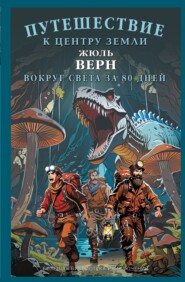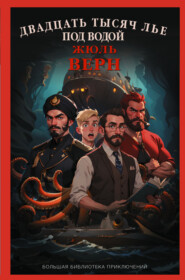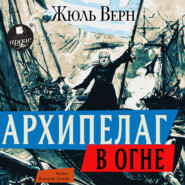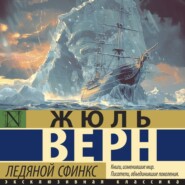По всем вопросам обращайтесь на: info@litportal.ru
(©) 2003-2024.
✖
Пятнадцатилетний капитан / Dick Sand. A Captain at Fifteen. Уровень 2
Настройки чтения
Размер шрифта
Высота строк
Поля
Negoro slowly left his kitchen. He showed his face upon the deck. The animal made a rush at him, and wanted to seize him by the throat. The man knocked the animal back with a poker which he had in his hand.
“Do you know this dog?” asked the captain.
“Know him? No!”
“Strange!” muttered Dick to himself; “there is some mystery here.”
Chapter IV
The Survivors of the “Waldeck”
The slave-trade[11 - slave-trade – работорговля] is still extensively carried on in all parts of equatorial Africa. Year after year vessels loaded with slaves leave the coasts of Angola and Mozambique to transport their freight to many countries.
Captain Hull knew that very well. He thought that the negroes were the part of a slave-cargo which was on its way to some colony of the Pacific. And he wanted to announce that they regained their freedom on board the “Pilgrim.”
Mrs. Weldon, assisted by Nan and Dick Sand, was doing everything in her power to restore consciousness to the poor sufferers. Fresh water and some food soon helped them. The eldest of them was a man of about sixty years of age. When he regained his powers of speech, he was able to reply in good English to all the questions. In answer to Captain Hull’s inquiry whether they were not slaves, the old negro proudly stated that he and his companions were all free American Citizens from the state of Pennsylvania.
This old man communicated all the information that Captain Hull required to hear, and he related all the details of his adventures.
He said that his name was Tom. When was only six years of age he was brought from his home in Africa to the United States; but he recovered his freedom. His companions, who were all much younger than himself, were all free-born. One of them was his own son; his name was Bat (an abbreviation of Bartholomew); and there were three others, named Austin, Acteon, and Hercules.
Three years ago the five men were engaged by an Englishman who had large property in South Australia. Upon the completion of their engagement they determined to return to America. On the 5th of January, they embarked at Melbourne on board the “Waldeck.” Everything went on well for seventeen days, until, on the night of the 22nd, which was very dark, they were run into by[12 - they were run into by – на них налетел] a great steamer. The scene was terrible; both masts were gone, and the brig completely heeled over on its side. Captain and crew disappeared. They were left alone upon a half-capsized and disabled hull, twelve hundred miles from the nearest land.
The boats were crushed in the collision, so that they had to await the appearance of a passing vessel.
For the next ten days the negroes were eating the food that they found in the stern cabin; but they were quite unable to obtain a drop of anything to drink. Tortured with thirst, the poor men suffered agonies. On the previous night they entirely lost consciousness.
All the outlines of Tom’s narrative were fully confirmed by the other negroes.
One other survivor of the wreck was the dog who had an unaccountable dislike to Negoro.
Dingo, as the dog was named, belonged to the fine breed of mastiffs. The animal came from the coast of West Africa, near the mouth of the Congo. The captain of the “Waldeck” get the dog two years ago. The initials S. V. were engraved upon the dog’s collar.
Dingo was very large. It was a magnificent example of his kind. Standing on hind legs, it was as tall as a man. This dog was like a panther. Its fine shaggy coat was a dark tawny colour, its long bushy tail was as strong as a lion’s. If he was angry, no doubt he became a most formidable foe.
Dingo was unsociable, but it was not savage. Old Tom said that, on board the “Waldeck,” Dingo had particular dislike to negroes; it uniformly avoided them.
The five men were profoundly grateful to their kind-hearted benefactors; poor negroes utterly resigned the hope to repay the debt which they owed their deliverers.
Chapter V
Dingo’s Sagacity
Meantime the “Pilgrim” pursued its course, it was keeping as much as possible to the east, and soon the hull of the “Waldeck” was out of sight.
Captain Hull still continued to feel uneasy. Not that for himself he cared much about the delay of a week or two in a voyage from New Zealand to Valparaiso, but he was disappointed at the inconvenience it caused to his lady passenger. Mrs. Weldon, however, did not utter a word of complaint.
The captain’s next care was to think about the accommodation for Tom and his four associates. There was no room for them in the crew’s quarters, so that their berths were under the forecastle.
After this incident of the discovery of the wreck, life on board the “Pilgrim” relapsed into its ordinary routine. The good-natured negroes were always ready to help; the strongest of them was Hercules, a great fellow, six feet high.
Hercules became at once little Jack’s friend; and when the giant lifted him like a doll in his stalwart arms, the child fairly shrieked with delight.
“Higher! higher! very high!” Jack was saying.
“There you are, then, Master Jack,” Hercules was replying.
“Am I heavy?” asked the child,
“As heavy as a feather.”
“Then lift me higher still,” cried Jack.
Besides Dick Sand and Hercules, Jack admitted a third friend to his companionship. This was Dingo. The dog was one of those animals that are fond of children. It allowed Jack to do with him almost anything he pleased. Jack found a live dog infinitely more entertaining than his old toy upon its four wheels, and his great delight was to mount upon Dingo’s back. Dingo was the delight of all the crew excepting Negoro, who cautiously avoided the animal who showed unmistakable symptoms of hostility.
But Jack did not forget his old friend Dick Sand, who devoted all his leisure time to him. Mrs. Weldon regarded their intimacy with the greatest satisfaction, and one day made a remark in the presence of Captain Hull.
“You are right, madam,” said the captain cordially; “Dick will be a first-rate sailor. He has an instinct which is a little short of genius.”
“Certainly for his age,” assented Mrs. Weldon, “he is singularly advanced. He may be able to become a captain.”
The eyes of the two speakers turned in the direction where Dick Sand was standing. He was at the helm.
“Look at him now!” said the captain; “nothing distracts him from his duty; he acts as the most experienced helmsman.”
Just at this instant Cousin Benedict emerged from the stern-cabin, and began to wander up and down the deck, peering into the interstices of the network, drawing his long fingers along the cracks in the floor.
“Well, Benedict, how are you getting on?” asked Mrs Weldon.
“I? Oh, well enough, thank you,” he replied dreamily.
“What were you looking for under that bench?” said Captain Hull.
“Insects, of course,” answered Benedict; “I am always looking for insects.”
“But don’t you know, Benedict,” said Mrs. Weldon, “that Captain Hull does not allow any vermin on the deck of his vessel?”
Captain Hull smiled and said, -
“Mrs Weldon is very complimentary.”
Cousin Benedict shrugged his shoulders.
“However,” continued the captain, “I dare say down in the hold you can find some cockroaches.”
“I can see, sir,” replied Benedict, “that you are not an entomologist!”
“Not at all,” said the captain good-humouredly.
“Do you know this dog?” asked the captain.
“Know him? No!”
“Strange!” muttered Dick to himself; “there is some mystery here.”
Chapter IV
The Survivors of the “Waldeck”
The slave-trade[11 - slave-trade – работорговля] is still extensively carried on in all parts of equatorial Africa. Year after year vessels loaded with slaves leave the coasts of Angola and Mozambique to transport their freight to many countries.
Captain Hull knew that very well. He thought that the negroes were the part of a slave-cargo which was on its way to some colony of the Pacific. And he wanted to announce that they regained their freedom on board the “Pilgrim.”
Mrs. Weldon, assisted by Nan and Dick Sand, was doing everything in her power to restore consciousness to the poor sufferers. Fresh water and some food soon helped them. The eldest of them was a man of about sixty years of age. When he regained his powers of speech, he was able to reply in good English to all the questions. In answer to Captain Hull’s inquiry whether they were not slaves, the old negro proudly stated that he and his companions were all free American Citizens from the state of Pennsylvania.
This old man communicated all the information that Captain Hull required to hear, and he related all the details of his adventures.
He said that his name was Tom. When was only six years of age he was brought from his home in Africa to the United States; but he recovered his freedom. His companions, who were all much younger than himself, were all free-born. One of them was his own son; his name was Bat (an abbreviation of Bartholomew); and there were three others, named Austin, Acteon, and Hercules.
Three years ago the five men were engaged by an Englishman who had large property in South Australia. Upon the completion of their engagement they determined to return to America. On the 5th of January, they embarked at Melbourne on board the “Waldeck.” Everything went on well for seventeen days, until, on the night of the 22nd, which was very dark, they were run into by[12 - they were run into by – на них налетел] a great steamer. The scene was terrible; both masts were gone, and the brig completely heeled over on its side. Captain and crew disappeared. They were left alone upon a half-capsized and disabled hull, twelve hundred miles from the nearest land.
The boats were crushed in the collision, so that they had to await the appearance of a passing vessel.
For the next ten days the negroes were eating the food that they found in the stern cabin; but they were quite unable to obtain a drop of anything to drink. Tortured with thirst, the poor men suffered agonies. On the previous night they entirely lost consciousness.
All the outlines of Tom’s narrative were fully confirmed by the other negroes.
One other survivor of the wreck was the dog who had an unaccountable dislike to Negoro.
Dingo, as the dog was named, belonged to the fine breed of mastiffs. The animal came from the coast of West Africa, near the mouth of the Congo. The captain of the “Waldeck” get the dog two years ago. The initials S. V. were engraved upon the dog’s collar.
Dingo was very large. It was a magnificent example of his kind. Standing on hind legs, it was as tall as a man. This dog was like a panther. Its fine shaggy coat was a dark tawny colour, its long bushy tail was as strong as a lion’s. If he was angry, no doubt he became a most formidable foe.
Dingo was unsociable, but it was not savage. Old Tom said that, on board the “Waldeck,” Dingo had particular dislike to negroes; it uniformly avoided them.
The five men were profoundly grateful to their kind-hearted benefactors; poor negroes utterly resigned the hope to repay the debt which they owed their deliverers.
Chapter V
Dingo’s Sagacity
Meantime the “Pilgrim” pursued its course, it was keeping as much as possible to the east, and soon the hull of the “Waldeck” was out of sight.
Captain Hull still continued to feel uneasy. Not that for himself he cared much about the delay of a week or two in a voyage from New Zealand to Valparaiso, but he was disappointed at the inconvenience it caused to his lady passenger. Mrs. Weldon, however, did not utter a word of complaint.
The captain’s next care was to think about the accommodation for Tom and his four associates. There was no room for them in the crew’s quarters, so that their berths were under the forecastle.
After this incident of the discovery of the wreck, life on board the “Pilgrim” relapsed into its ordinary routine. The good-natured negroes were always ready to help; the strongest of them was Hercules, a great fellow, six feet high.
Hercules became at once little Jack’s friend; and when the giant lifted him like a doll in his stalwart arms, the child fairly shrieked with delight.
“Higher! higher! very high!” Jack was saying.
“There you are, then, Master Jack,” Hercules was replying.
“Am I heavy?” asked the child,
“As heavy as a feather.”
“Then lift me higher still,” cried Jack.
Besides Dick Sand and Hercules, Jack admitted a third friend to his companionship. This was Dingo. The dog was one of those animals that are fond of children. It allowed Jack to do with him almost anything he pleased. Jack found a live dog infinitely more entertaining than his old toy upon its four wheels, and his great delight was to mount upon Dingo’s back. Dingo was the delight of all the crew excepting Negoro, who cautiously avoided the animal who showed unmistakable symptoms of hostility.
But Jack did not forget his old friend Dick Sand, who devoted all his leisure time to him. Mrs. Weldon regarded their intimacy with the greatest satisfaction, and one day made a remark in the presence of Captain Hull.
“You are right, madam,” said the captain cordially; “Dick will be a first-rate sailor. He has an instinct which is a little short of genius.”
“Certainly for his age,” assented Mrs. Weldon, “he is singularly advanced. He may be able to become a captain.”
The eyes of the two speakers turned in the direction where Dick Sand was standing. He was at the helm.
“Look at him now!” said the captain; “nothing distracts him from his duty; he acts as the most experienced helmsman.”
Just at this instant Cousin Benedict emerged from the stern-cabin, and began to wander up and down the deck, peering into the interstices of the network, drawing his long fingers along the cracks in the floor.
“Well, Benedict, how are you getting on?” asked Mrs Weldon.
“I? Oh, well enough, thank you,” he replied dreamily.
“What were you looking for under that bench?” said Captain Hull.
“Insects, of course,” answered Benedict; “I am always looking for insects.”
“But don’t you know, Benedict,” said Mrs. Weldon, “that Captain Hull does not allow any vermin on the deck of his vessel?”
Captain Hull smiled and said, -
“Mrs Weldon is very complimentary.”
Cousin Benedict shrugged his shoulders.
“However,” continued the captain, “I dare say down in the hold you can find some cockroaches.”
“I can see, sir,” replied Benedict, “that you are not an entomologist!”
“Not at all,” said the captain good-humouredly.

















